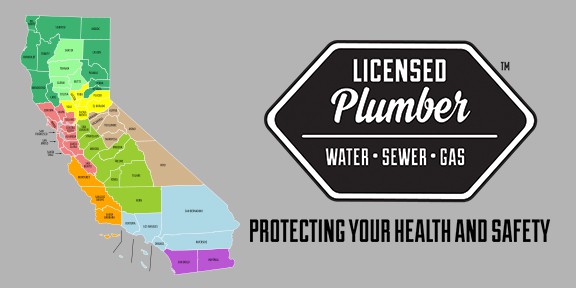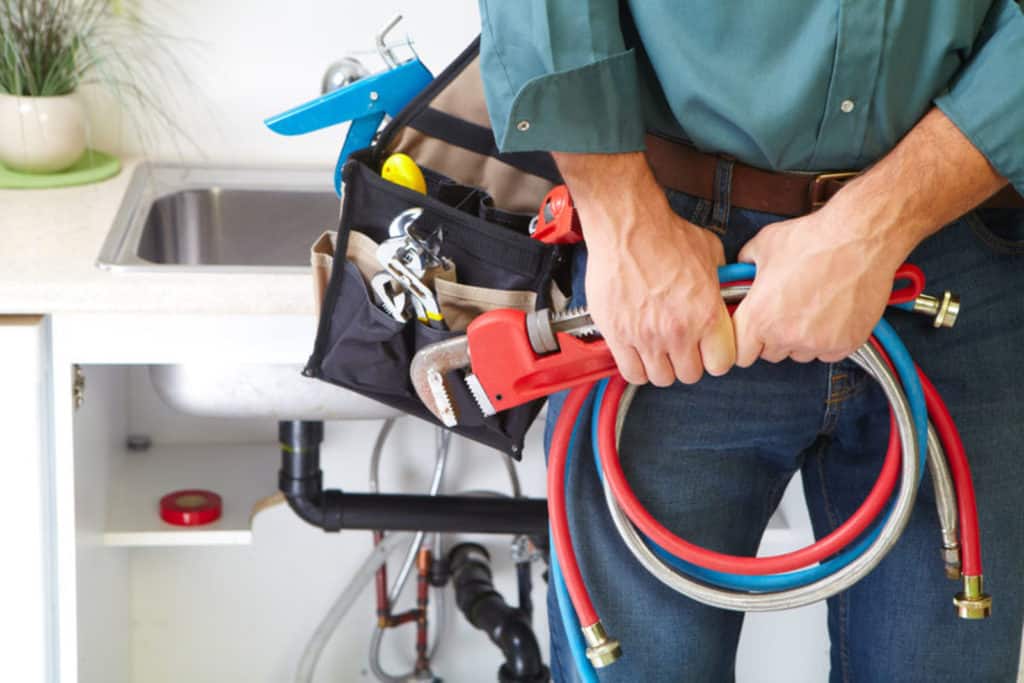Table of Contents

Why Licensing is Important
At this point in the 21st century, acquiring a trade skill such as plumbing provides a lucrative career path, considering how these fields are gaining more recognition. However, learning trade skills isn’t as simple as taking the four-year route to university, since each state has different regulations and requirements for licensing qualifications. Learn how to become a licensed plumber in California below.
Getting licensed from your state-based authority is a beneficial turning point for a plumber’s career. It promotes learning about the specific plumbing problems that are common in a state, and how to address them with advanced methods.
State vs. District-Based Agency Licensing
Licensing is crucial, no matter what state you want to work in, and it’s provided by either a state or district-based authority. Having a license means accessing various job opportunities in your state, which includes large-scale projects like designing plumbing layouts. Performing plumbing work without a proper license is an offense under section 221D, sub-section 1 of the Building Act 1993.
In some states, getting a state license is enough for a contractor to complete projects all over the state. On the other hand, bigger states with diversified cities and districts will require a plumbing contractor to get a district license.

Getting a Plumbing License in California
This will limit them to working in a particular district, but since these areas will be very large, such as those in the state of New York, contractors get plenty of work opportunities.
Requirements for a Plumbing Contractor License
California’s licensing requirements for tradesmen are determined at a state level. Different municipalities have the responsibility of enforcing these specifications. Plumbers need a license to perform contractor-based work in California i.e. work that exceeds the cost of $500, but not everyone working as a plumber needs one. For example, an apprentice plumber and journeyman plumber working under a contractor don’t require one.
The California Contractors State Licensing Board is responsible for taking exams and authorizing licenses.
High School Diploma or Equivalent
Any person applying for a plumbing contractor license should be at least 18 years of age and have a high school diploma or equivalent i.e. a GED.
Other Requirements

Apprenticeship
Before you can get a contractor license, you need to complete at least 4 years of apprenticeship under a licensed contractor. An apprenticeship includes getting work-related practical experience and formal education regarding equipment, fixtures, and processes.
Applying For a License
In California, you may have to pass a test that assesses basic oral and written skills for reading comprehension and math. You will also need a valid driver’s license.
Application Form
You have to fill in an application for the license; it’s available at the official California CSLB address, website, or you can get it by calling 1-800-321-CSL.
Fingerprint Requirements
In California, applicants for a plumbing contractor license have to submit fingerprints. These are required for a compulsory criminal background check. You’ll have to pay a fee for having your fingerprints scanned, which depends on the location you select for the scan.
Verify Your Work Experience
If you meet the basic requirements, you can be selected to provide verified documentation about work experience. This acts as confirmation to check if the applicant actually meets the basic expectations.
Exam
How to Find a Job
The application form will need you to submit various documents and other information. Applicants require a Social Security Number. You’ll have to submit an application fee of $330 with your application form.
Once you get a plumbing contractor license, various employment opportunities are available.
Stay Connected With Your Apprenticeship Employer
Most licensed plumbing contractors stay connected with the employer where they completed their apprenticeship. They work as a contractor for the company and train apprentice plumbers. The benefit of this is that you understand how things work so you don’t take much time to settle in.
Start With a New Company

Start Own Company
On the other hand, you can also choose to work for a new employer for a change of pace. This offers the benefit of a new work environment that often acts as a motivating factor, and diversifies your experience.
Working in a Different State
Lastly, you can choose to start your own plumbing company or work as a solo contractor. This will require you to have the technical know-how of starting and maintaining a business, as well as any regulations surrounding it.
Advocate for Licensing
PHCEid.org is an advocate for the Plumbing, Heating, Cooling, and Electrical contractor to properly identify their licensed status for public awareness. Professional Contractors have the license or certification to work in homes and businesses. Without the proper certification and licensing to become a skilled trades professional, it compromises the integrity of the trade industry.
The contractors listed on the PHCEid.org website are licensed or certified according to the codes and laws set forth by each governing state and/or entity. Licensed Contractors work in compliance with local and state codes set forth by their governing trade industry board. Get more information at PHCEid.org or call 844-954-2367 today!
Nonetheless, getting your state or district plumbing license doesn’t imply that you can work in any state you’d like. In fact, it doesn’t’ even mean that you can work the entirety of your career with just one license.
Getting a plumbing contractor license from Indiana means you can only practice in Indiana. For projects that fall out-of-state, it may be possible to get a temporary permit. Similarly, plumbing contractors will have to get their licenses renewed every year to keep practicing. This is helpful because you get a chance to gain more knowledge about the field.
